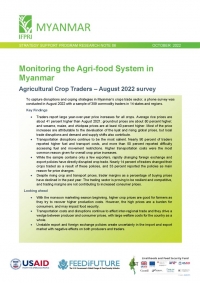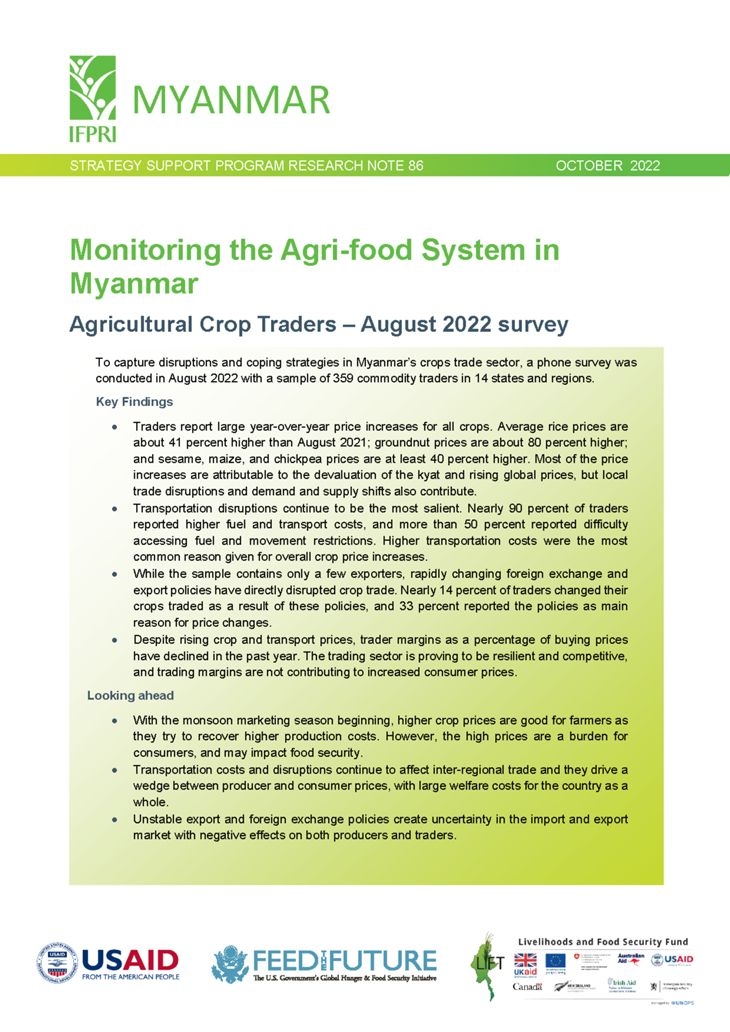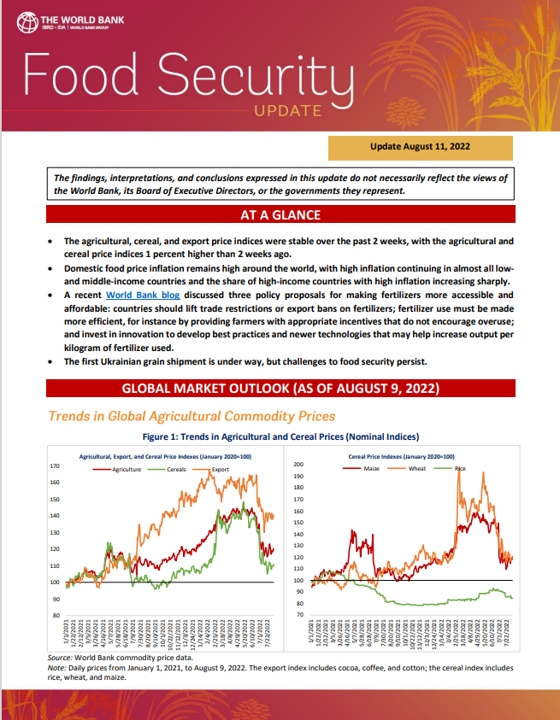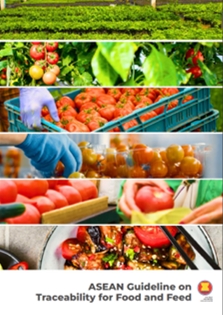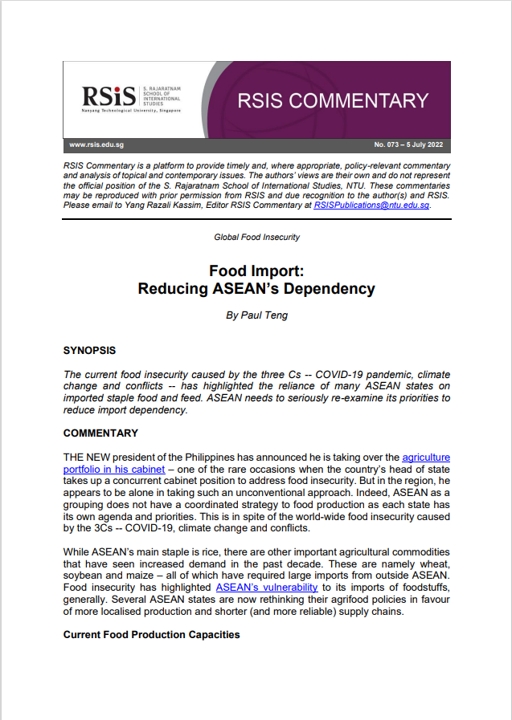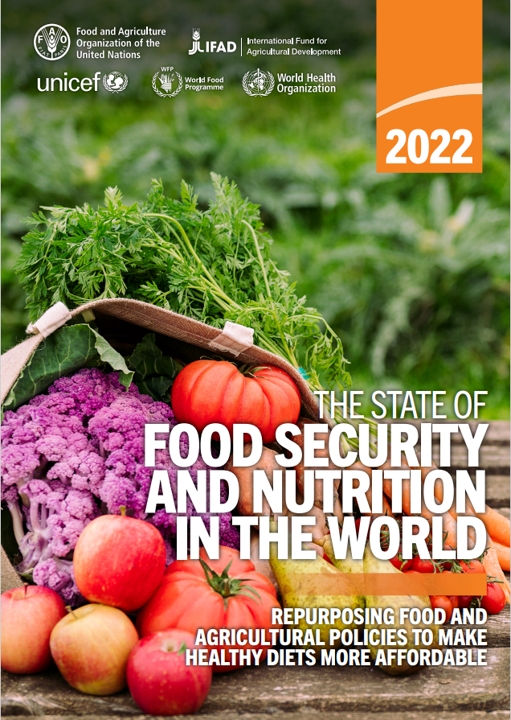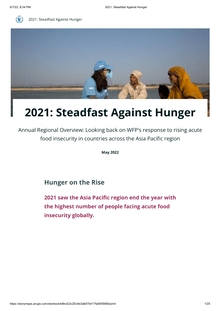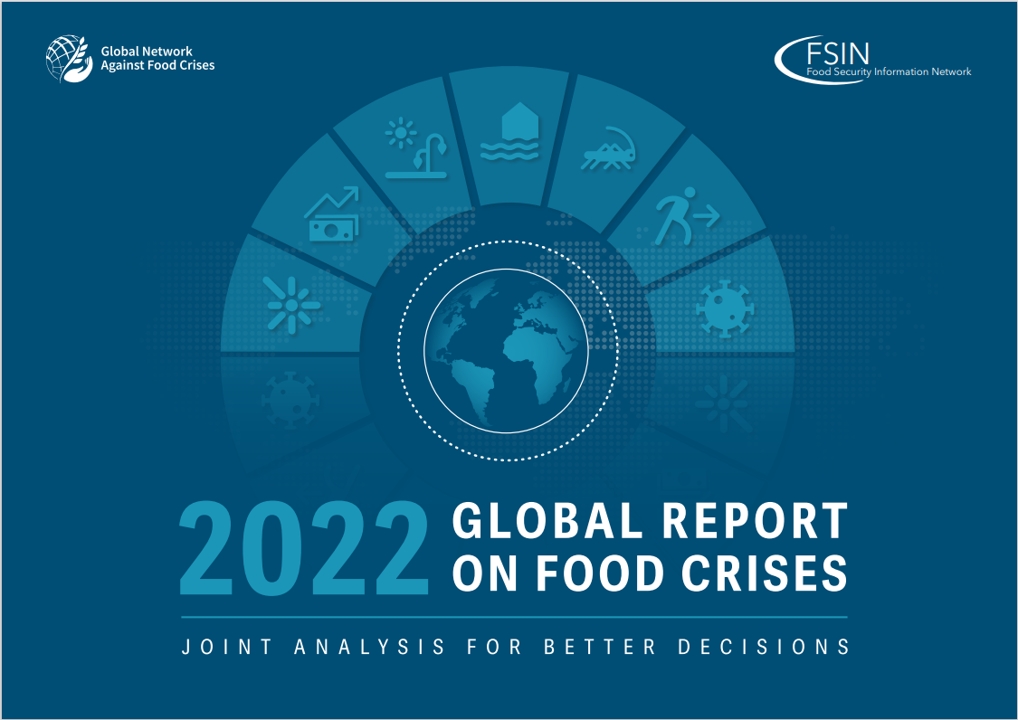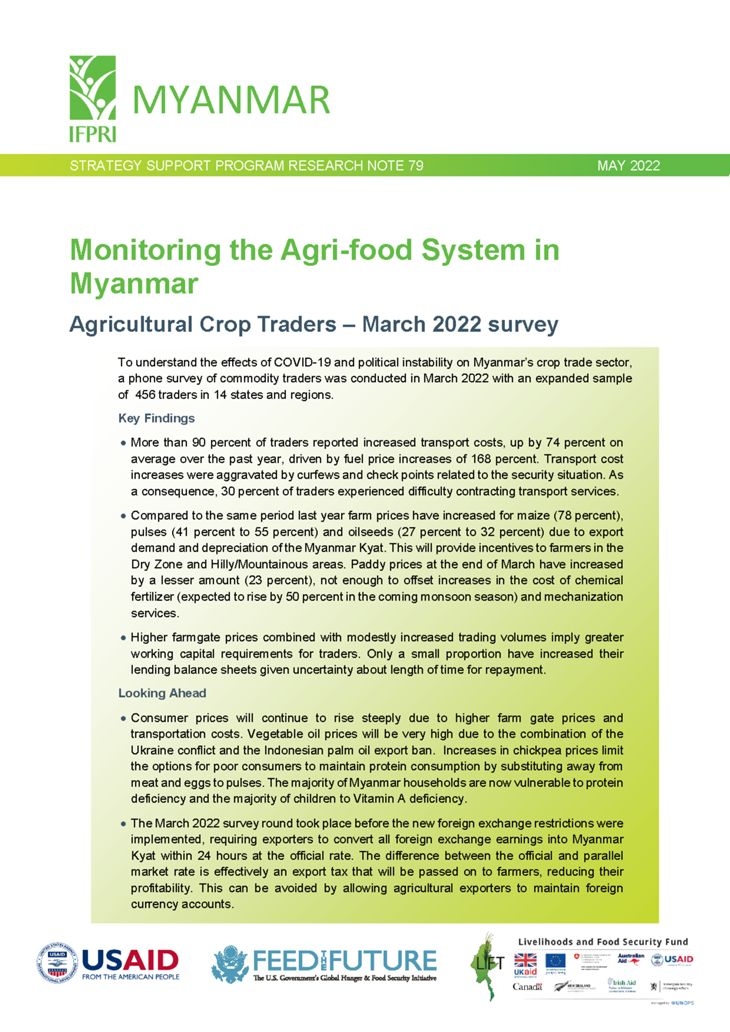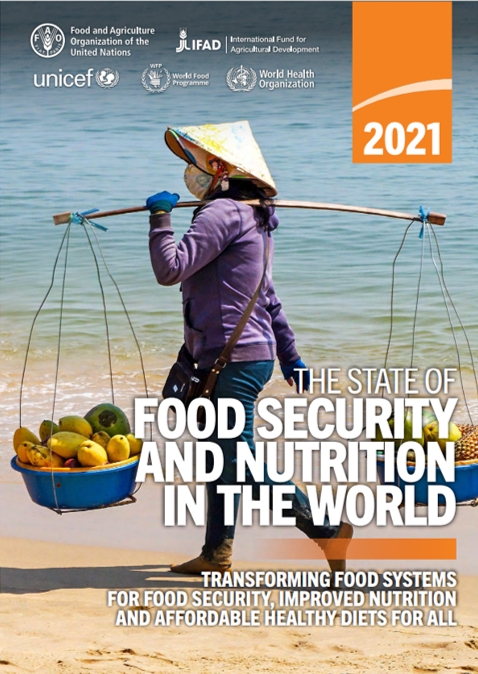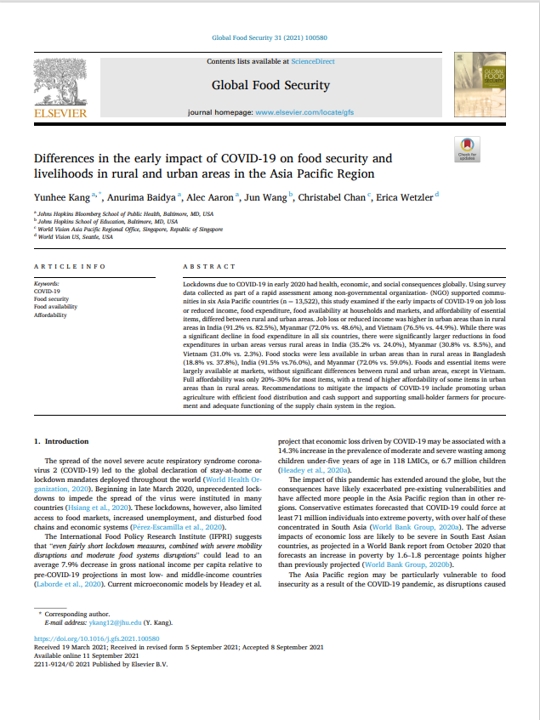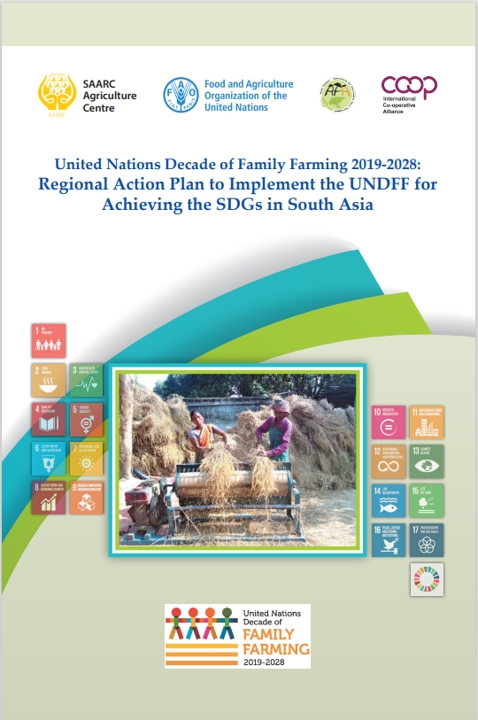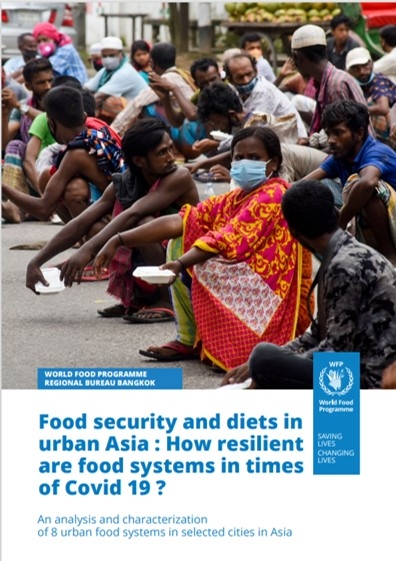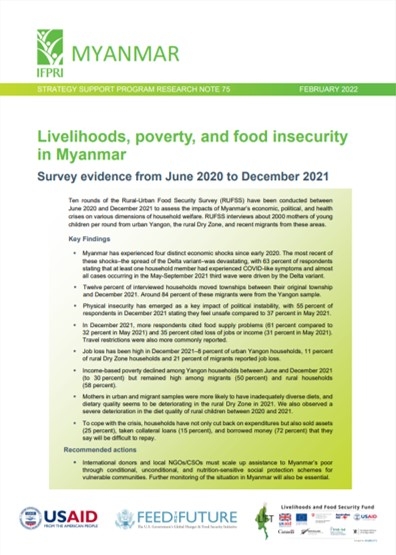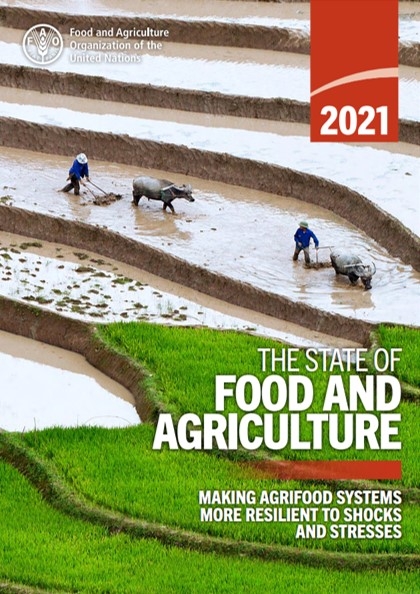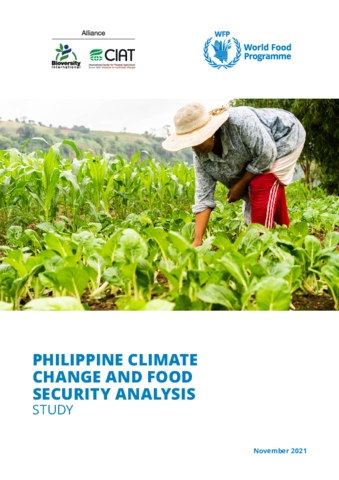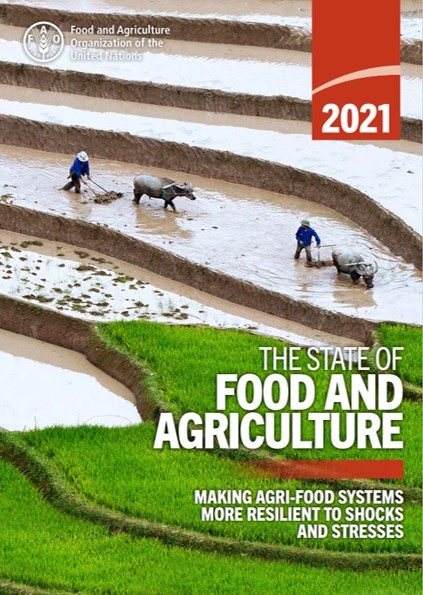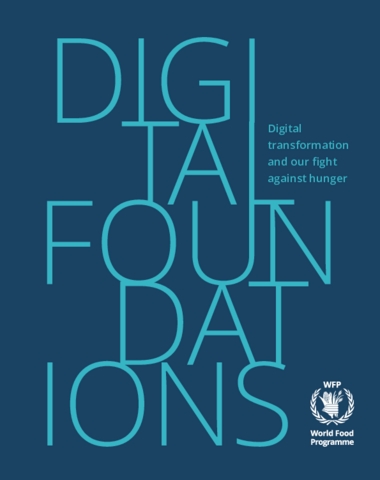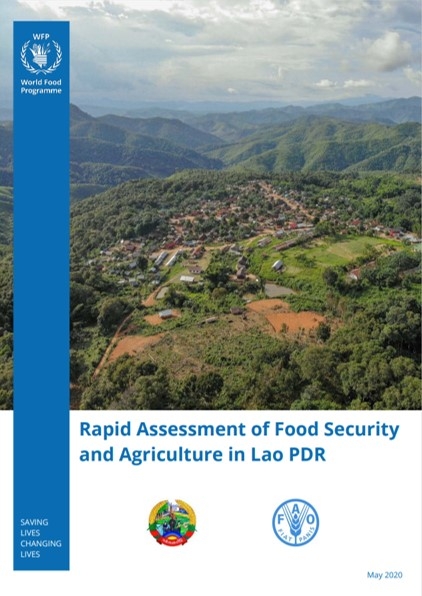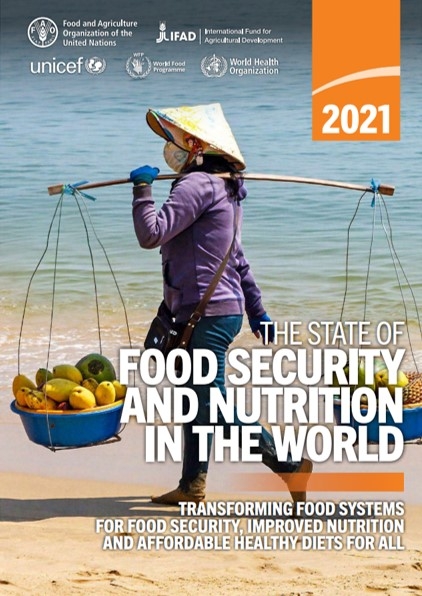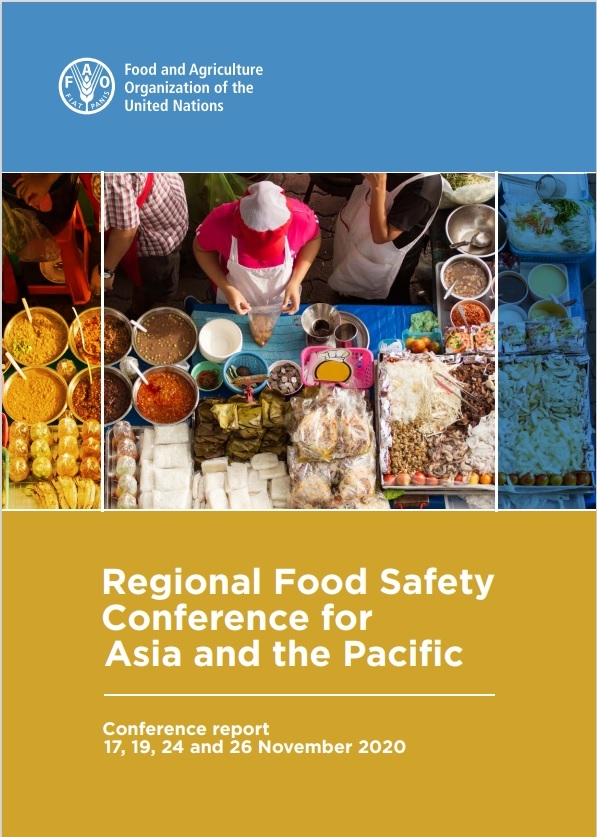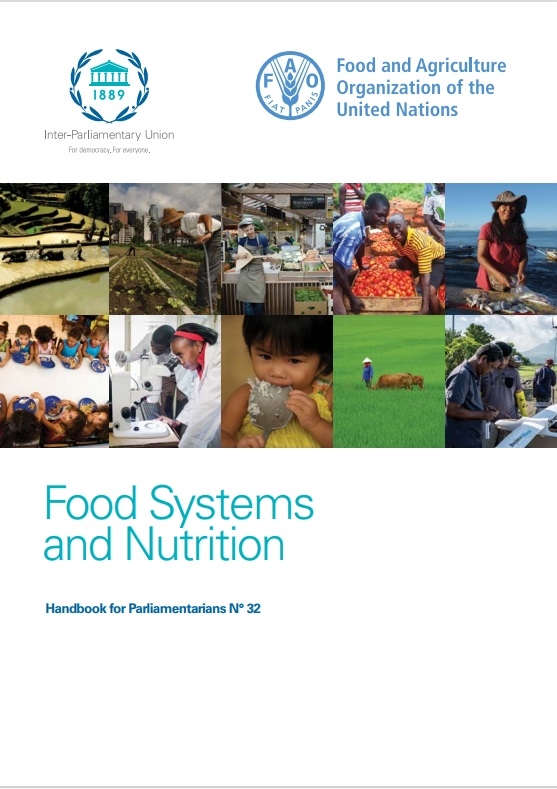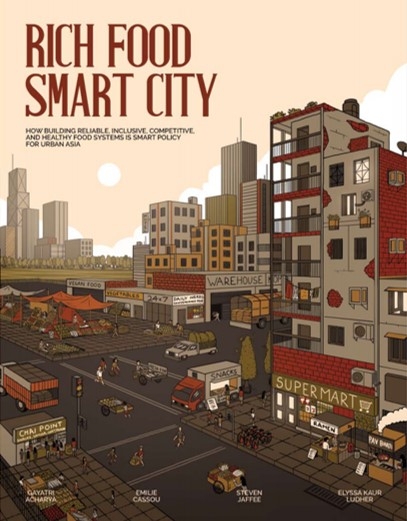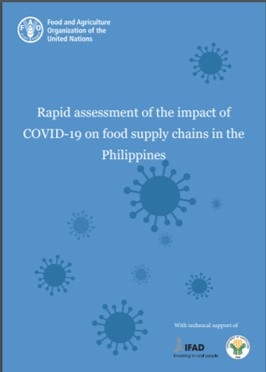Crop traders are important actors in the mid-stream of Myanmar’s food supply chains serving as the essential link between farms and food processors, exporters, commodity exchange centers, and urban food markets. Disruptions in the mid-stream brought on by political instability and COVID-19 will likely have an impact on both farmers and urban consumers through market access and crop pricing.This is the eighth Research Note in a series that has monitored the impacts of COVID-19 and political instability on crop traders in Myanmar through telephone surveys since May 2020. This Research Note presents results from 359 interviews conducted between August 24th and September 5th, 2022 including (i) general and major disruptions caused by the political crisis (ii) perceived impacts resulting from transportation restrictions and recent changes in foreign currency regulations; (iii) changes in crop prices, trading volumes, transport costs, and fuel prices; (iv) detail on credit lent out to farmers and credit taken in by traders. The sample covers 111 townships in 14 states and regions (Figure 1). Traders from Shan State comprise the largest share in our sample (32 percent) followed by Magway (17 percent), Sagaing (17 percent), and Mandalay (15 percent). Wholesalers who purchase, store, grade, and sell commodities account for nearly three quarters of the sample. The other quarter is brokers and agents who facilitate crop transactions on commission. We split the two groups in the analysis and compare contemporary data from 2022 to recalled data from 2021. Results are shown as percentage changes.
